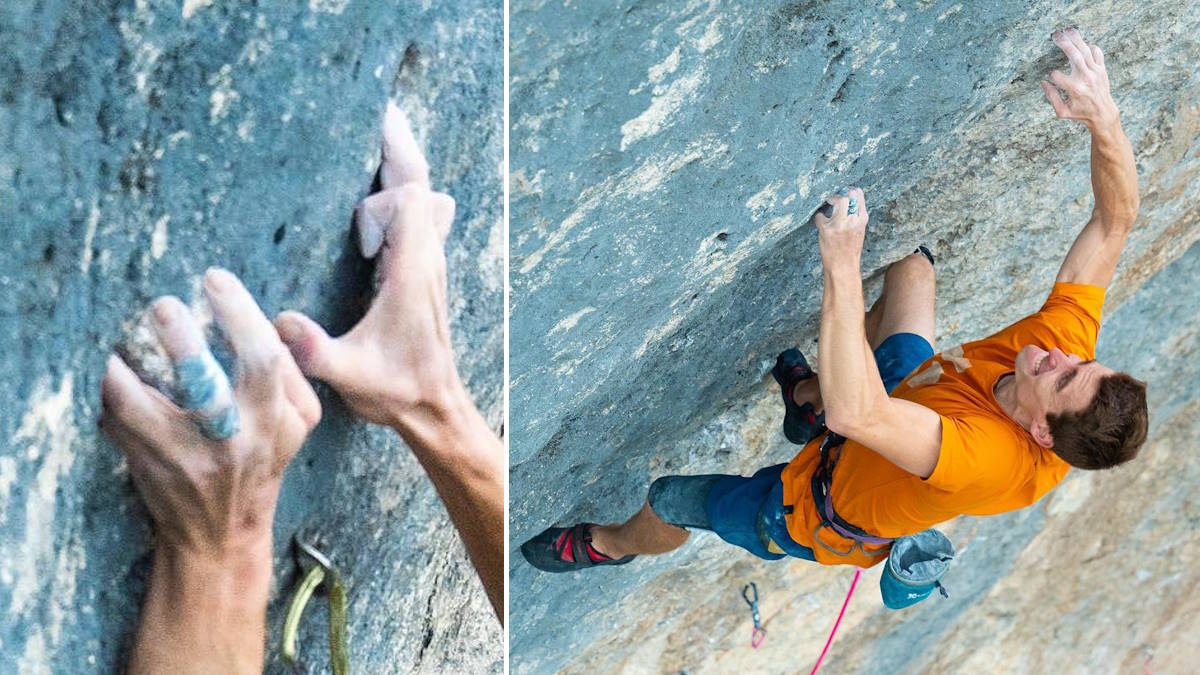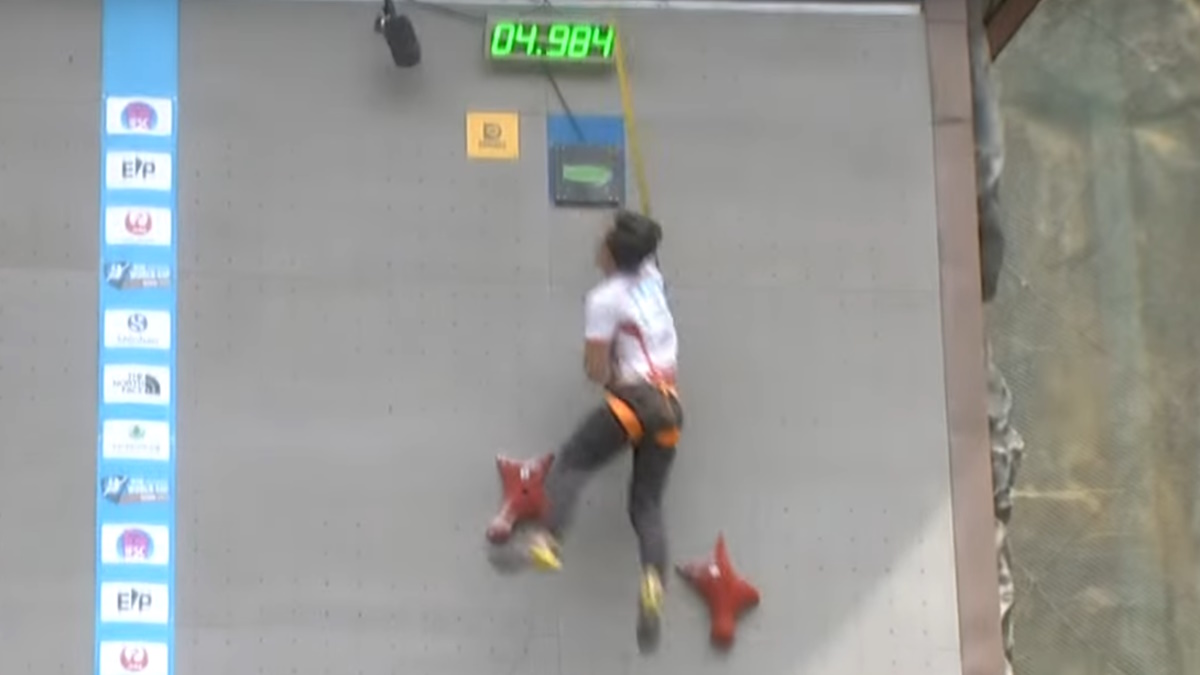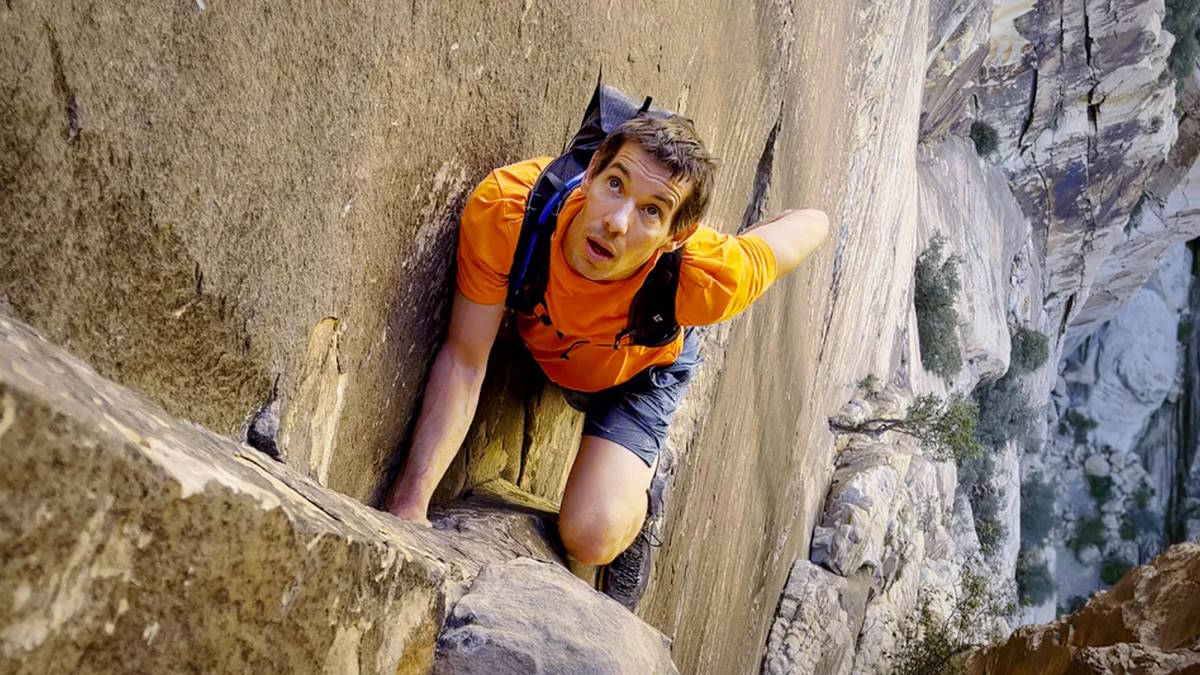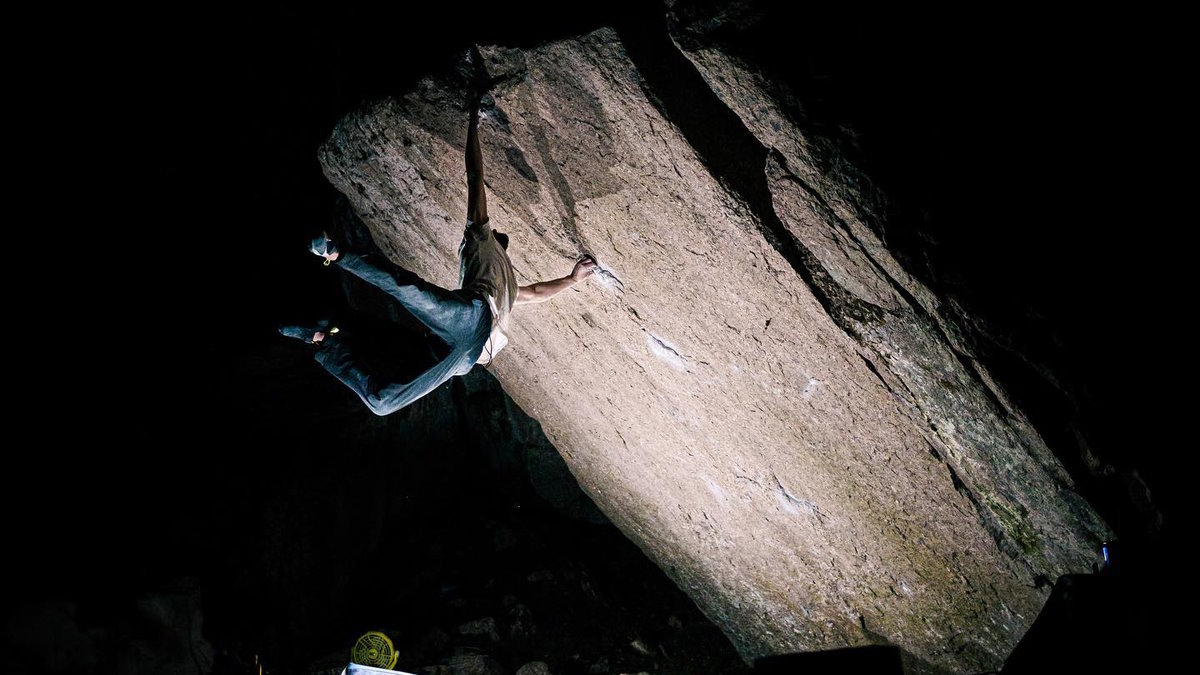The IFSC has taken unprecedented steps by barring all Russian and Belarusian athletes and officials from competing. They have also stopped all events in those countries, as well as suspended all representatives from those foundations from being part of any IFSC meetings.
These steps come after heavy pressure from the climbing community to take action. Government response to the Russian war on Ukraine has included financial sanctions and official condemnation of Russia and Belarus, but private business and sports organizations have also been showing solidarity.
IFSC & UIAA Cancellations
The International Federation of Sport Climbing has barred athletes and officials from any IFSC events, meetings, and from hosting. That means the Speed and Boulder World Cup event in early April is canceled.
This is not a one-off from a sports organization. The International Olympic Committee has recommended Russian and Belarusian athletes should be banned from all events. The International World Games Association has also banned Russian and Belarusian athletes from the World Games.
The Union Internationale des Associations d’Alpinisme has also canceled two Ice Climbing World Cup events that were due to happen in March.
How Will This Help?
While it’s widely true that the majority of the Russian people – including climbers and athletes – have nothing to do with the war and mostly oppose it, this type of pressure is important.
The Putin-controlled government can essentially do what they want, regardless of the public’s wishes. The idea is that no country or alliance can overthrow or remove Putin without starting a world war. The only possible route to getting Putin to back down from the war – or be removed from office – is widescale pressure from the people of Russia.
However, this is massively risky for the people. Russia does not have free speech. This war is being reported as a “special operation” to save ethnic Russians from oppression from Ukrainians. President Volodymyr Zelensky is being described as a “drug-addled Nazi”, even though he is Jewish.
4,300 Russians have been arrested in protests in the last couple of weeks, police in Moscow are stopping people in the street to read their texts and private messages to scan for dissent, and a new law against “fake news” about the Ukraine war means a jail sentence of up to 15 years threatened against journalists and people sharing facts.
Belarus has faced the same sanctions because it has allowed Russian troops to move into Ukraine from its border, as well as supply its own troops for the war. President Alexander Lukashenko has been in office for six terms after massively rigged elections, opposition leader “disappearances”, and violent crackdowns on protest.
The Real Dangers Of Free Speech
It’s very important for people outside of Russia to realize what might happen to well-known athletes and climbers for speaking out. Anyone standing up publically to denounce the war – or even call it a war – is at real risk of physical harm or a harsh prison sentence.
The athletes that have chosen to do so are very brave for taking that step. Even posting something very innocuous could be the end of their career. While we should support those that choose to speak up, we shouldn’t condemn those that don’t.
In Russia, men aged 18-27 must serve a year in the military. This means many of the pro climbers we know may have been the very people sent to Ukraine unless they had been given an exception because of their sports training.
Much of the Russian army in Ukraine is made up of young men who were told they would be doing military exercises on the border. When ordered to move into Ukraine they were assured they would be greeted as heroes saving the people from Nazis. Only now are they realizing both are wildly untrue.
Russian Climbers Denounce The War
Iuliia Kaplina competed at the Olympics, having previously been a speed climbing record holder. She posted on her Instagram, worrying about her relatives in Ukraine.
Vadim Timonov is a Russian climber who has bouldered up to V15 and regularly competes in IFSC events. He posted on Instagram coming out against the war, though the post text is now simply “Stop”.
Rustam Gelmanov has posted an image of him paragliding with a wing in the colors of the Ukranian flag. He talks about his support of the Ukrainian people and the pressure and mistakes of the Russian government.
Russian Mountaineer Alexander Gukov was recently rescued from the top of Latok 1 a week after his partner’s death. He has spoken out against the war and even protested in Novorossiysk.
Jenya Kazbekova is a Ukrainian climber who competes internationally and climbs hard on real rock. She spoke out on Instagram, saying “I never thought that we would come to this in the 21st century. I never thought that I would have to flee my home because of the bombing… …my dear friends from Russia, don’t be silent, please! Tell us what is really happening in Ukraine! Show non-Russian sources of information, try to help your population turn on critical thinking and common sense!“.
Danyil Boldyrev is a Ukrainian speed climber from Donetsk who won the last IFSC Speed Climbing Championship in Moscow. He has been speaking out against the war on Ukraine.
Irina Galay is a Ukrainian mountaineer that has had to put her plans to climb Annapurna on hold. Instead, she’ll be defending her hometown from the Russian invaders.
An open letter posted by mountain.ru – a Russian mountaineering news website – denouncing the war was recently removed without explanation. Two open letters from the Russian climbing community have also been posted and have attracted hundreds of signatures from climbers and professionals.
Many climbers from around the world have voiced their support for Ukraine and have roundly condemned the Russian acts of war. Many local centers and people have also offered safe spaces for Ukrainian refugees to get to safety or stay long term.
Header image: School destroyed by Russian shelling in Zhytomyr, with Ukrainian soldier and fire service
How Climbers Can Help
You can help in a number of ways. Most importantly by contacting your local government official and expressing the need to support Ukraine financially, accept refugees, and help with transport and removing diplomatic barriers.
Make sure any news or reporting you read is factual and not Russian misinformation. Check the source’s credibility and the sources. Be wary of sharing images of news instead of the original news source, images are easy to create.
You can donate money to: –
- Ukraine directly to support their military
- Disasters Emergency Comittee Ukraine Humanitarian Appeal
- UNICEF Ukraine Appeal
- Doctors Without Borders
You can also donate items like bedding, first aid supplies, toiletries, and more. In the UK this article is a good resource for local organizations that are accepting and moving donations.
You could also register with your local authority to accept refugees into your own home.



